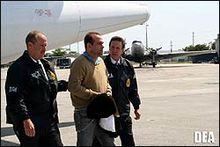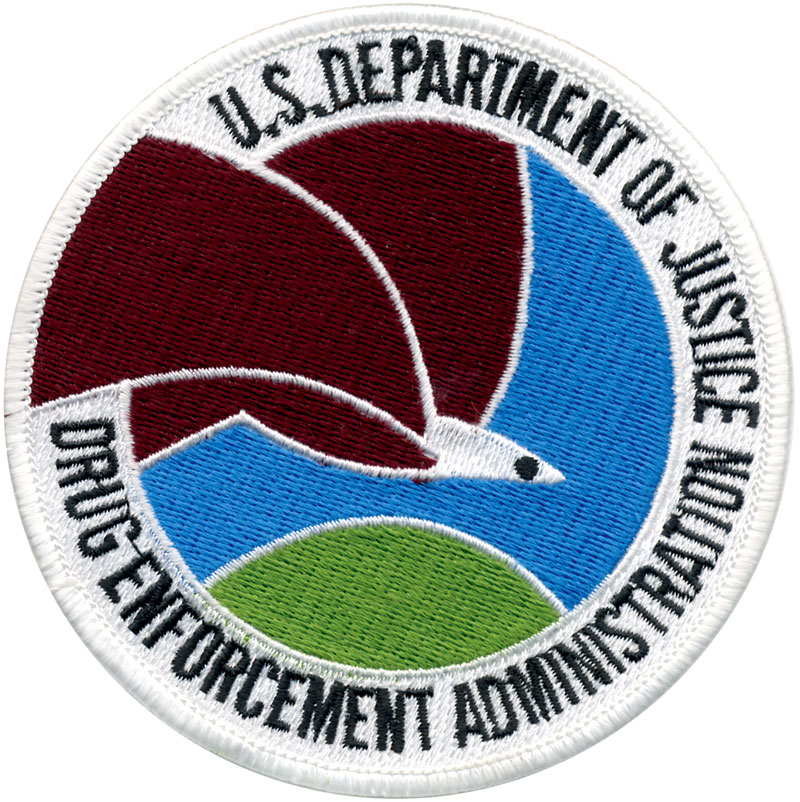WASHINGTON D.C.

One of Colombia’s most notorious drug traffickers was sentenced to 15 years and 10 months for leading an international narcotics organization that imported tons of cocaine into the United States, officials said.
U.S. District Judge Ellen Segal Huvelle on Tuesday sentenced Salvatore Mancuso-Gomez, aka El Mono, formerly of Monteria, Colombia.
Mancuso-Gomez pleaded guilty in October 2008 to one count of conspiracy to distribute cocaine knowing and intending that it would be imported into the United States, officials said.
“Through his leadership position in the AUC, Salvatore Mancuso-Gomez directed the manufacture and shipment of over 100,000 kilograms of cocaine into the United States and elsewhere,” said Assistant Attorney General Leslie Caldwell.
Adding, “In addition to enriching himself, Mancuso-Gomez and the AUC used this drug money to raise and arm a paramilitary force of more than 30,000 fighters and cement his control over regions of Colombia. This case is yet another example of our continued commitment to collaborating with our international partners to prosecute criminals and warlords who traffic in illegal narcotics, violence and intimidation.”
According to the plea agreement, these are the facts surrounding this case:
- Mancuso-Gomez held one of the highest level leadership positions within the Autodefensas Unidas de Colombia — United Self Defense Forces of Colombia or AUC, a terrorist and paramilitary organization in Colombia.
- In September 2001, the AUC was designated a Foreign Terrorist Organization by the U.S. Department of State.
- In May 2003, the AUC was placed on the Significant Foreign Narcotics Traffickers list by order of the President, pursuant to the Foreign Narcotics Kingpin Designation Act.
- In February 2004, Mancuso-Gomez individually was designated as a Tier II Kingpin by the Department of Treasury’s Office of Foreign Assets Control, subjecting him to severe economic sanctions under the Kingpin Act.
- AUC consisted of approximately 30,000 armed soldiers organized into blocs (or regions) with commanders for each bloc.
Also as part of the guilty plea, Mancuso-Gomez outlined how the organization worked:
In connection with his guilty plea, Mancuso-Gomez admitted that, from the mid-1990s through 2004, he directed thousands of soldiers in two blocs of the AUC, controlling large areas where cocaine was produced.
Mancuso-Gomez admitted that the AUC produced about 4,400 pounds of cocaine per month during the conspiracy, and that he and members of the organization transported the cocaine to the coastal areas of Colombia where it was loaded onto go-fast boats and other vessels for ultimate transportation to the United States and Europe.
Mancuso-Gomez also admitted that he levied taxes on other narcotics traffickers who needed passage through AUC-controlled territories, and that he used proceeds from his drug trafficking activities to purchase weapons and other supplies for AUC activities.
Mancuso-Gomez claimed that the AUC maintained tight control of their territories in Colombia through intimidation of corrupt members of the Colombian government, including law enforcement and military personnel and politicians.
Today’s sentence does not account for violations of Colombian human rights-related laws allegedly committed by Mancuso-Gomez, which are being addressed in Colombia through the Justice and Peace process – a legal framework enacted in 2005 to facilitate the demobilization of its paramilitary organizations – and Colombian criminal justice system, according to officials.
The case was investigated by DEA’s Bogotá and Cartagena, Colombia, Country Offices, and the DEA Special Operations Division. The government of Colombia provided unprecedented assistance through the investigation, prosecution and sentencing phase of this case, according to federal officials.

